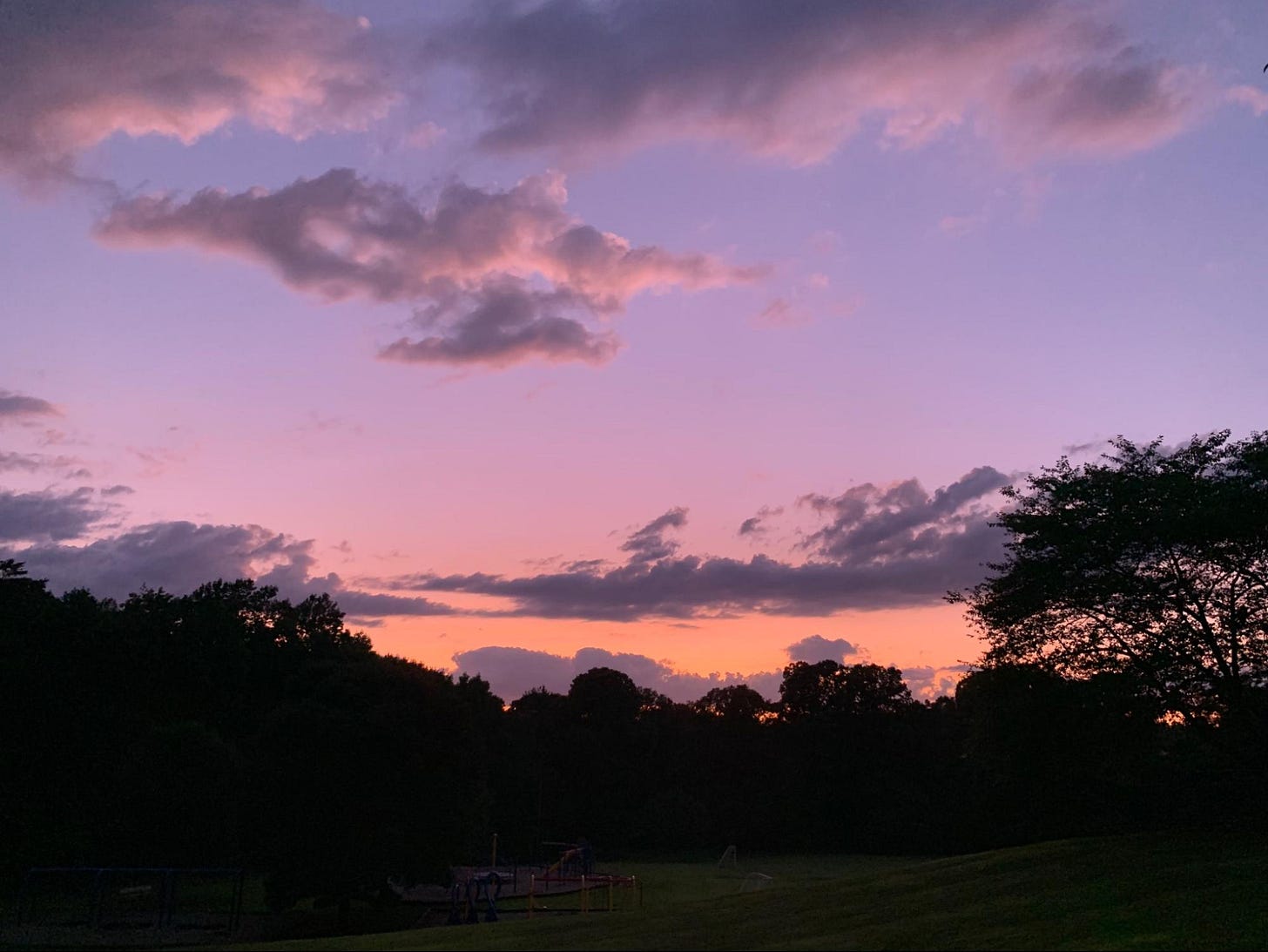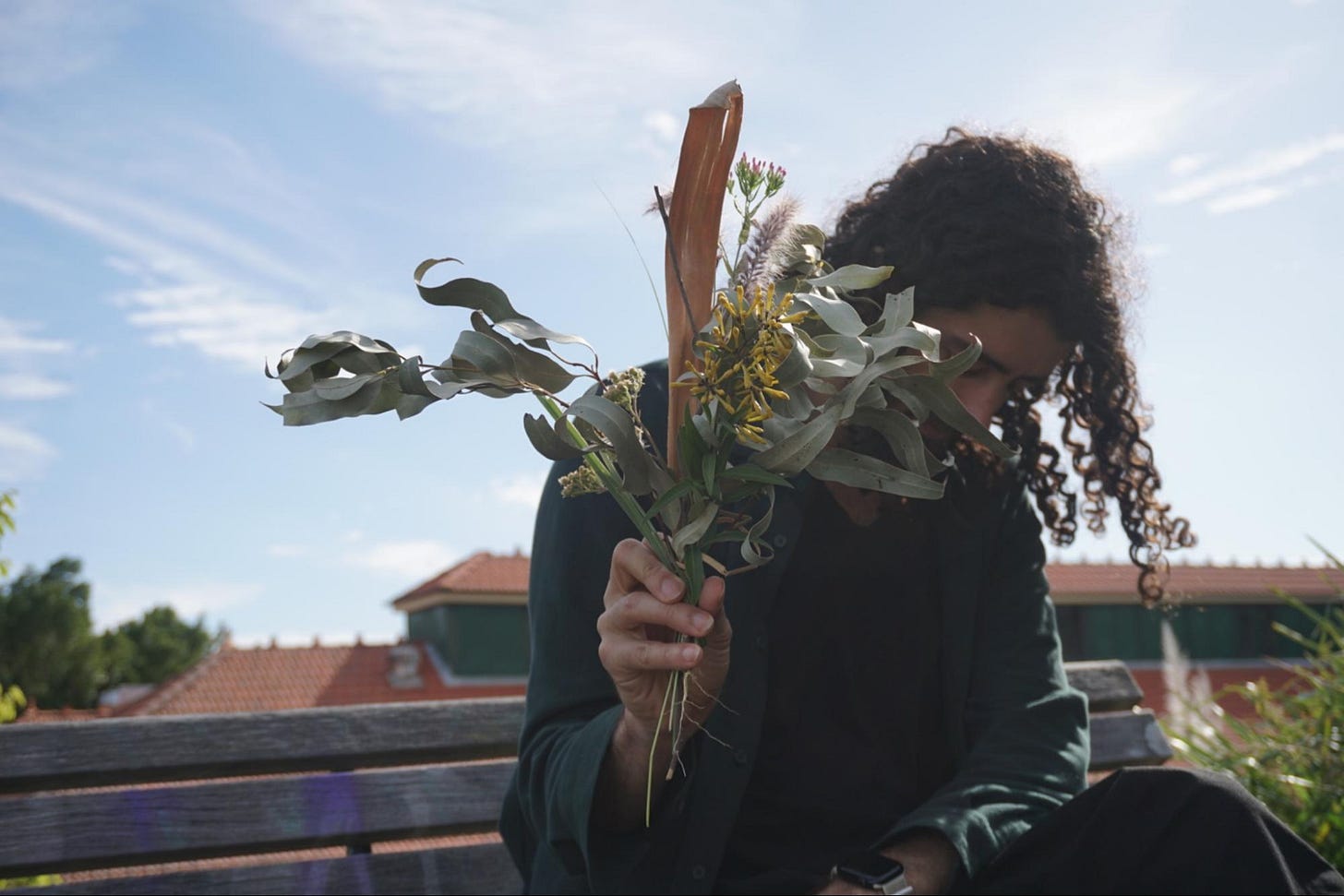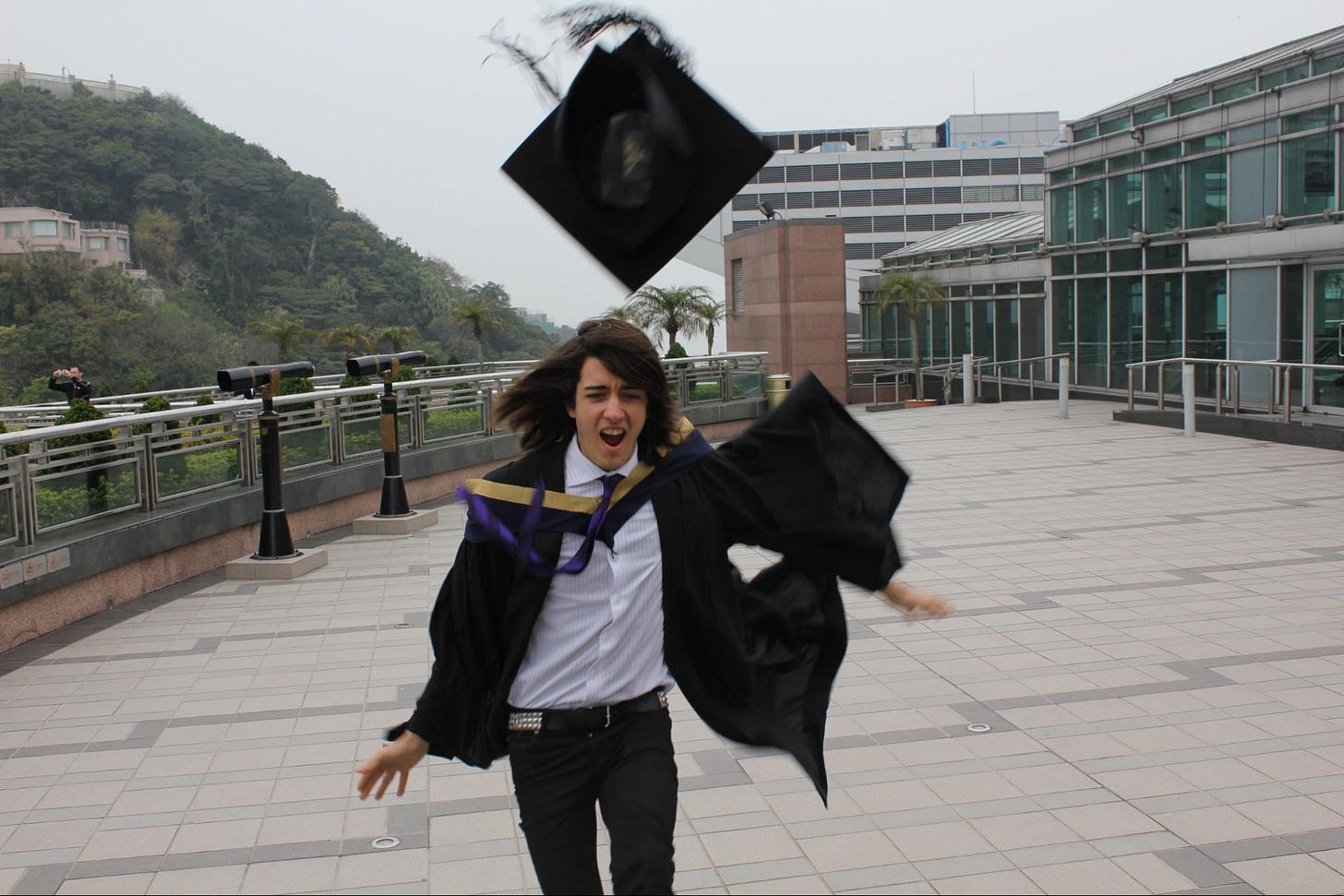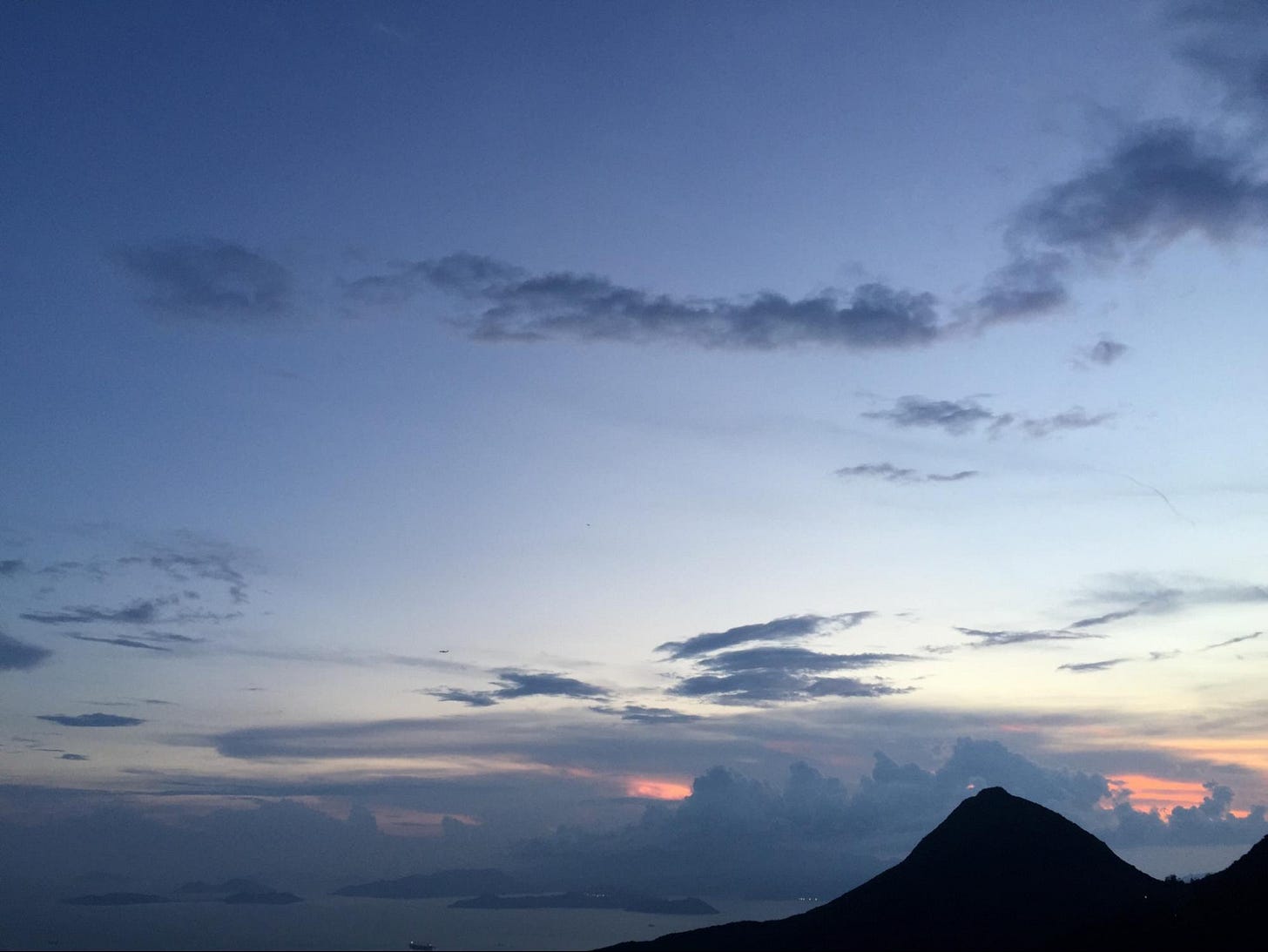Every once in a while, you meet someone who makes you stop and think more deeply.
Alex is one of them.
Alex first caught my attention as he wrote about leaving his hometown in Virginia after high school, flying across the world, and studying in Hong Kong. I went the opposite direction and went to Kansas from Hong Kong after high school. I was curious and messaged him. He gave me the most heartfelt reply about his experience and how Hong Kong had shaped him. I am so grateful to meet him along the way.
Tell us about yourself and what's on top of your mind.
I’m Alex from Poetry Culture, a Substack about living a more creative and fulfilling life.
I previously freelanced for the New York Times and National Geographic, and just finished a PhD here in Australia, which was on the role of trust in finance. I also have a band called Lonely Singles.
When I was 18 I moved from my native Virginia to attend the University of Hong Kong. I did my whole degree there, and lived in HK for about 5 years. Although I have since moved to Australia, some of my favorite memories were made in HK. It’s one of the most beautiful cities in the world, and might just be the best. I think you’re lucky, Franco, to be from such an amazing place. Thanks for asking me to interview here, it’s a real honor.
How do you feel at this moment in life?
It was recently the anniversary of a close friend’s suicide, which was very hard. But a mere two days later was the anniversary of my sister’s wedding where I delivered the vows. Then, and now, I felt a huge mix of happiness and sadness all at once.
I suppose the juxtaposition of the two events illustrated something I already rationally know, but don’t always emotionally grasp: That great tragedy and great happiness coexist throughout life, and in some ways are inseparable.
On a personal level I am excited about the new Clipse album. I’m actually only a casual hip hop fan, but I feel hip hop is one of the most vital ways poetry exists in contemporary culture. Some bemoan the “death of poetry” since reading old books by dead Europeans is less popular (to be clear, I love some of these books) but I think poetry will always be with us, and today poetic wordplay is vividly relevant in popular music. In fact, it’s probably bigger than ever–music and poetry have been linked since the dawn of both art forms.
Years ago I read Sei Shoganon’s ‘The Pillow Book’ which is a memoir of a Japanese noblewoman in the year 1002. She wrote poems back and forth to friends, and in one of the poems, one party totally dissed the other in poetic form, implying their friendship was cold like the snow. During the Kendrick and Drake battle, I recalled this poem and realized nothing really changed over the 1,000 years. I think people who are calm or somewhat introverted—I’d include myself in this category—are sometimes put off by the raw aggression of some hip hop songs, but these feelings are part of life too. Kendrick Lamar beautifully (and famously) discusses the repressed trauma which leads to some of this on his song “Mother I Sober.”
But even though I spent all this time talking about hip hop, I usually listen to stuff like Graceland Too by Phoebe Bridgers—and the 10th anniversary of Carrie and Lowell was just perfect. My own music, I suppose, is closer to those influences, and I strongly believe in the link between poetry and music.
3. What is the biggest lesson you’ve learned from your parents?
My parents both grew up without fathers. My mother’s father died young, and my father’s father left the family. Despite being both raised in what used to be called “broken” homes, they have been exceptionally loving and caring to myself and my sisters. I’m very lucky to have come from a caring and loving family, especially as both of them were raised in more difficult circumstances.
That’s a powerful reminder not to judge people based on their backgrounds, and that even if our childhoods were hard, we have the capacity to create a great life for ourselves and our children.
4. What have you experienced that has changed the way you live?
Moving alone to Hong Kong. I was 18 and I had never been away from my parents for more than two nights in a row. And I didn’t know anyone there!
I remember leaving them at the airport, smiling, waving, and being absolutely overwhelmed by a tidal wave of sadness. I quickly walked to the bathroom, found a stall, and was just sobbing uncontrollably.
Even though I wanted to go to HKU so badly, it was so hard to go alone. I remember nights in bed listening to “Everything Will Be Alright” by The Killers on repeat for hours until I fell asleep, and the pillow would still be slightly damp when I woke up.
But I never questioned it, because it had to happen. It was destiny. It’s like falling in love, or being halfway though the marathon and your legs hurt and you just start crying but you have to keep going.
Hong Kong was so important because I learned about myself and was able to craft my own individual life. And the truth is, I was unhappy in Virginia—it’s one reason I was so determined to go far away. Virginia was my home but I was not trapped there, and it alone would not define me. And I made wonderful friends from all over the world. I wrote some songs. I randomly got scouted as a model, appeared in magazines, and did a couple Runway shows for Gucci. I remember, when I was a model, I met these Ukrainians—two women and a man—and I asked them what they would do after their modeling contract was up, and one of the women said they would all go back and finish school. I said I had just finished college, and asked what they were studying. “We need to finish high school” the other woman said. And I realized beneath all the makeup they were teenagers. I hadn’t even noticed how young they were. This was a decade before the invasion, and I still wonder about them.
For better or worse, Hong Kong and the mainland were changing so fast in those days that it felt like anything was possible. I think that mindset is valuable, especially if you aren’t exceptionally settled.
5. How do you define happiness?
I’d probably define happiness as freedom.
I think you can’t chase happiness, you can only try to be free, and if you succeed, you’ll become happy. If you aren’t happy, at least you’ll be free.
Chasing happiness presupposes that, at any point in your life, you know what is best for you. But each of us are limited— we grow up (usually) in one culture with one family, often in the same town or city. The world is so vast and life is not forever. I’ve felt happiest and most alive when I’ve had the most unexpected but wonderful things happen— eating on the side of the road in Shanghai. Randomly meeting someone I knew from Japan in Bali. Etc. There is great happiness in the routine—I always go home for Christmas, and I love my parents—but I just don’t think happiness itself is a worthy goal. It is an indirect result of living a life worth living.
You might even argue that happiness as a goal is sort of a trap, since what makes us happy changes. At 15, I would’ve loved to play video games all day. When the PS4 came out I bought it, and I was, I dunno, 25 or something, and it was just boring. I had been so excited to get back into it, and the graphics were way better now, and there were like 64 or 128 players in shooting games or whatever, but I had just mentally moved on.
That said, I’ve always been lucky to feel a deep sense of love from my parents and sisters, so perhaps I feel I can be free since I always have love to return to, and with me always.
Who is your favorite writer, and why?
Maybe Matsuo Basho, because I admire how he really lived a poetic lifestyle, traveling across Japan, depending on the kindness of strangers, and writing poems. I just interviewed Kenza Wilks, whose bicycling trips across China have echoes of Basho, and it’s fun to see.
Jack Gilbert would be up there too, but what is really difficult is I just know there are 100 writers I’ll never meet or read who might change my life. For example, I found out about the work of Cecilia Llompart Borges kind of randomly, but her first collection of poems was deeply meaningful to me.
Imagine this writer was standing in front of you and you could ask one question, what would you ask?
I would ask for Basho’s favorite songs and food recipes, since I feel being able to listen to, and physically taste, something the artist loved would bring me closer to them than many other questions would. If I talked to Gilbert I might ask for a specific cafe or restaurant, as a few might still be around.
“… even if our childhoods were hard, we have the capacity to create a great life for ourselves and our children.” This is the most powerful mindset one could have. No matter what happened in the past, we are in control of making today and tomorrow a little better for the people we love. Thank you so much, Alex, for the warmth, tenderness, and friendship.
Next week, we have Istiaq.
- Franco
Alexander Webb is the author of Poetry Culture and singer/songwriter in indie band Lonely Singles. He also writes about academic research at The Studies Show. Poetry Culture is expanding with more workbooks, meetups, and activities for members.









